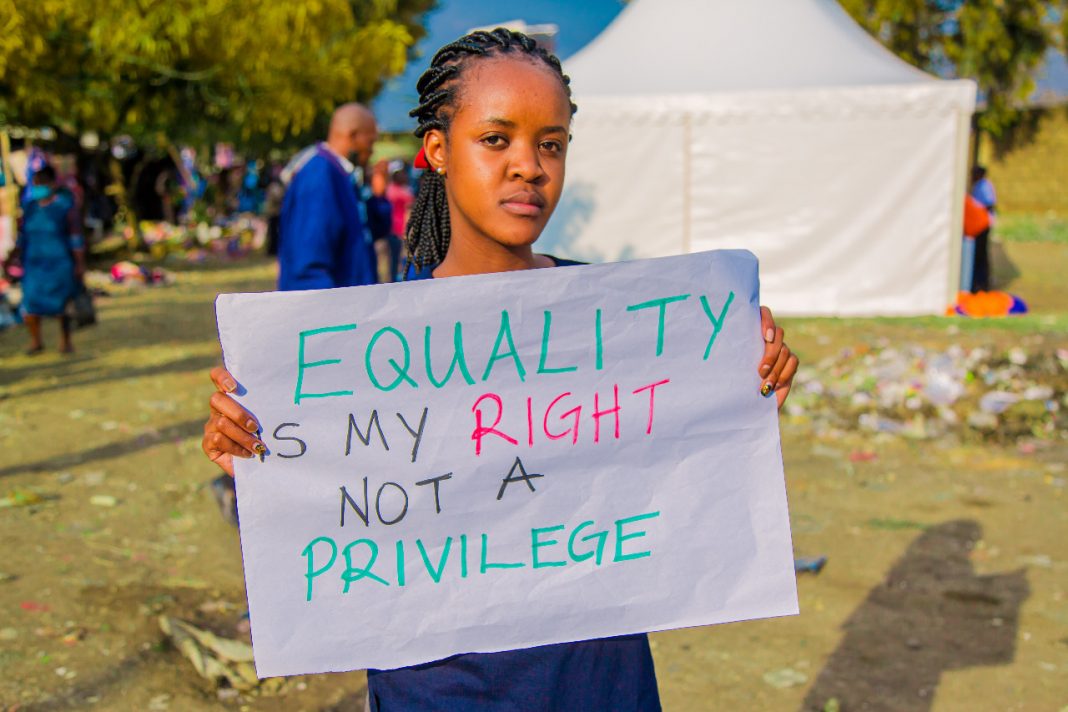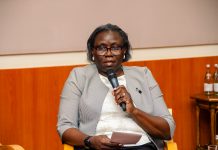By Stephanie Mukandairo
The African Union (AU) Member States have been called to urgently address rising sexual violence and exploitation of women and girls across the continent.
The appeal launched by Equality Now, an international human rights organization, focuses on criminalizing femicide, ending child marriage, securing reparations for survivors of sexual violence, protecting reproductive rights in conflict zones, and combating the surge of digital and cross-border sexual exploitation.
The call was made during the 83rd Ordinary Session of the AU Commission on Human & Peoples’ Rights (ACHPR) held in Banjul, Gambia on 2nd-22nd May, 2025.
According to UNICEF, over 79 million women and girls in sub-Saharan Africa have been subjected to sexual violence as children, making it the most affected region globally.
Despite this, Equality Now’s research reveals systemic barriers to justice. Their report titled, “Barriers to Justice: Rape in Africa, Law, Practice and Access to Justice” outlines widespread legal loopholes including laws that allow marital rape, courts that absolve rapists if they marry their victims, and judicial systems that assess guilt based on a survivor’s behavior rather than forensic evidence.
Speaking at the event, Deborah Nyokabi, a legal equality and gender policy expert at Equality Now, said, “These are not isolated acts. They are symptoms of deeply entrenched discrimination, institutional gaps, and a collective failure to protect women and girls.”
The human rights organization is urging the Commission to compel States to implement the Niamey Guidelines, adopted by the Commission in 2017, which outline specific obligations for governments to combat sexual violence and offer reparations to survivors.
One of the most urgent legal gaps is the failure to criminalize the most extreme and brutal manifestation of violence against women. Despite growing public outcry, many African nations still do not legally recognize femicide as a distinct crime.
In 2024, Kenya reported 170 cases of femicide, but no targeted law exists. A petition calling for legislative reform has garnered over 78,000 signatures, yet action remains stalled. In Cameroon, public anger erupted last month after a man convicted of killing his wife received a five-year suspended sentence and a $90 fine.
Equality Now is urging African governments to leverage the momentum from the 2025 AU Convention on Ending Violence Against Women and Girls, which includes a formal definition of femicide, to strengthen legal frameworks and end the impunity that fuels gender-based murder.
“The numbers are harrowing, but the silence in law is even more disturbing,” said Violet Otindo, Communications Officer from the Ministry of Information, Communications and the digital economy during an interview with her. “When justice systems fail to name or punish femicide adequately, they send the message that women’s lives are disposable.
The urgency extends to conflict-affected nations like Sudan and the Democratic Republic of the Congo (DRC). In Sudan, now in its third year of war, rape and sexual violence are being used as weapons by all sides.
The destruction of healthcare infrastructure has left survivors without access to medical care or reproductive health services, resulting in a rise in maternal mortality, miscarriages, and unintended pregnancies. In both Sudan and the DRC, Equality Now calls for sexual and reproductive health rights to be integrated into humanitarian responses and for Sudan to finally ratify the Maputo Protocol, the continent’s flagship framework for women’s rights.
Child marriage also remains a critical concern. Fourteen of the 20 countries with the highest prevalence rates of child marriage are in Africa. Girls married early are often forced out of school and exposed to severe health risks from early childbirth. Equality Now is calling on all AU member states to raise the minimum age of marriage to 18 years without exceptions and to implement national action plans aligned with 2017 recommendations from the African Commission and the African Committee of Experts on the Rights and Welfare of the Child.
The rising wave of digital violence is another frontier requiring immediate attention. With increased internet access across the continent, online abuse, including the non-consensual sharing of intimate images, cyberstalking, and sexual harassment, is becoming more prevalent. A recent UNODC report found that 42% of trafficked victims in sub-Saharan Africa were girls, many exploited through digital channels. Equality Now warns that without robust enforcement of digital safety laws and investments in technological protections, digital platforms will continue to be weaponized against women and girls, especially those in public life like politicians, journalists, and human rights defenders.
Equality Now is not alone in this call. One such coalition is the Solidarity for African Women’s Rights (SOAWR), a network of over 70 civil society organizations across 33 African countries. In November 2023, during the 16 Days of Activism against Gender-Based Violence, SOAWR issued a comprehensive “Call to Action and Accountability” urging AU Member States to ratify and implement the Maputo Protocol, which addresses a broad spectrum of women’s rights, including protection from violence, harmful practices, and reproductive rights.
The coalition also called for the enactment and enforcement of laws prohibiting all forms of discrimination and gender-based violence, alongside increased investment in public education and communication campaigns aimed at dismantling harmful cultural and traditional practices that perpetuate inequality.
“Gender-based violence in Africa is a pandemic with legal, medical, and psychological dimensions,” said Nyokabi. “It demands a response grounded in data, backed by law, and powered by political will.”






